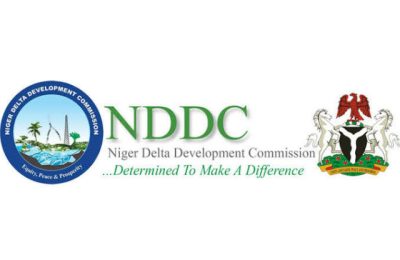THE real estate market across Nigeria is facing significant challenges, with property prices skyrocketing and sales slowing down in many parts of the country, Executive Director of the Housing Development Advocacy Network (HDAN), Mr. Festus Adebayo, has said.
Adebayo pointed out this while highlighting the dramatic impact of inflation on the real estate sector.
He explained that the steep rise in property prices was partly due to inflation and the high cost of building materials, exacerbated by the devaluation of the Naira and the rising costs associated with importing construction materials.

This inflationary pressure, he pointed out has also led to increased challenges for estate developers, who now face difficulties in securing buyers, despite resorting to extensive advertising efforts.
In light of these challenges, Adebayo emphasised that it has become tough for real estate sales nationwide, with similar trends observed in other major cities like Lagos and Port Harcourt.
According to him, developers have come under pressure to innovate in their construction methods, funding models, and financing options for buyers to sustain their businesses in this difficult economic environment.
“For the Nigerian economy’s real estate sector, 2024 has not been a favorable year. This is clearly reflected in the sector’s performance during the first half of the year. According to recent figures from the National Bureau of Statistics (NBS), despite contributing a substantial N11 trillion to the Gross Domestic Product (GDP) alongside construction, stakeholders expressed concerns that their experiences have been far from positive.

The Central Bank of Nigeria (CBN) has also introduced several reforms aimed at stabilizing the economy, including controlling inflation, enhancing revenue collection, reducing budget deficits, managing public debt, and stabilizing the exchange rate. Unfortunately, these measures have yet to succeed in curbing inflation,” he said.
Surge in inflation, Adebayo said has led to a decline in consumer purchasing power, directly impacting the real estate market, adding that inflation has also driven up construction costs, challenging the viability of new projects and reducing the number of new developments.
He said: ”The costs of building materials have soared, labor costs have skyrocketed, and house prices have followed suit. Even maintenance costs have risen, unsettling the rental market and squeezing renters.
“Beyond inflation, volatile and high interest and exchange rates have further hampered the sector. In an effort to encourage savings and reduce money in circulation, the CBN has raised interest rates to a point where borrowing has become unfeasible for developers.
Meanwhile, the exchange rate has been erratic, with the naira once trading at N1,600 to the dollar in the parallel market. Since over 70 percent of building materials are imported, this exchange rate regime has forced many projects to halt.”
The HDAN ‘s executive director pointed out that though there have been signs of easing volatility, but the it’s not yet time to celebrate for developers and investors since the dollar has remained scarce.
“Moreover, the state of the economy has shifted priorities, with many Nigerians focusing more on basic necessities like food and healthcare rather than purchasing luxury homes,” he said.
In Abuja, he said that the prime locations such as Maitama have seen a dramatic increase in property prices.
“For instance, a five-bedroom fully detached duplex in Maitama that previously sold for N800 million now costs between N1.5 billion and N2 billion, reflecting over a 100 percent price hike. Similarly, in Katampe Extension, a five-bedroom fully detached house that once went for N500 million is now priced at around N1 billion to N1.2 billion, depending on the finishing and size.
“Even in less central areas like Kubwa, property prices have surged. Houses that used to sell for N40 million to N60 million are now going for between N150 million and N200 million, depending on the finishing and location within the area.”
“Also, the cost of renting properties has increased substantially, with rents in Maitama for a 5-bedroom duplex rising from N15 million-N25 million per annum to as much as N40 million-N45 million.
“Despite the economic hurdles, population growth remains a significant driver of residential real estate demand, especially in mid-market areas. The widening housing deficit continues to be a major concern among stakeholders.
A recent World Bank report, referenced by Matthew Ashimolowo, Senior Pastor at Kingsway Christian Centre (KCC), Maryland, Lagos, during the opening of the 18th Africa International Housing Show (AIHS) in Abuja, highlights this issue. The report estimates the housing shortfall at 20 million units,” Adebayo said.
READ ALSO: Food insecurity: Army deploys officers to protect farmers in the north







